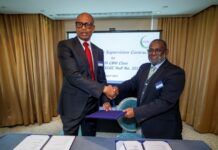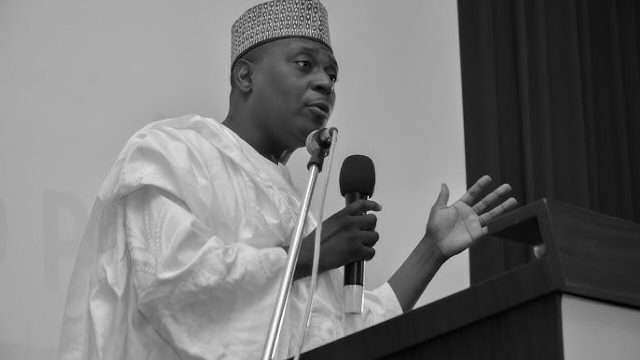The coordinating minister of health and social welfare, Prof Muhammad Pate, has said that no fewer than 16, 000 medical doctors left Nigeria to practice abroad in the last five years.
The minister disclosed this at the seventh annual capacity building workshop of the Association of Medical Councils of Africa (AMCOA) held yesterday in Abuja under the theme ‘Integrated healthcare regulation and leadership in building resilient health systems.’
Hosted by the Medical and Dental Council of Nigeria (MDCN), the event was attended by representatives from across Africa.
Pate said available records indicated that more doctors, nurses and other healthcare workers had also indicated interest to leave to pursue professional opportunities and experience abroad.
“We are confronted with the challenge of an increasing number of talented healthcare professionals leaving to work in other countries. Obviously, this was driven by factors such as economic opportunities, better working conditions, advanced training, and superior research environments abroad.
“I, too, migrated in the early 1990s. In 1993, I started at the MRC Lab in The Gambia and the ECFMG pathway that many here know well. So, I understand the drivers because they haven’t changed. The migration of health professionals from developing countries is not new, but it has accelerated in recent years,” Pate said.
He, however, confirmed that steps were being taken to correct some of the identified challenges that could possibly herald the reversal of the exodus of medical personnel.
“We have doubled the quotas for training in medical schools, pharmacy, nursing and other health professions. Why? Because our experience shows that when you train more, more might stay, and those who left often return.
“We are also correcting mal-distribution of medical workforce. Over 40 percent of our doctors are concentrated in Lagos and Abuja, while many parts of Nigeria remain without adequate medical coverage. You can’t force doctors to relocate, but you can incentivize them with financial and non-financial rewards,” he added.
For his part, the minister of state for health, Dr Iziaq Salako, suggested a reciprocal framework for a “train-for-train” model, where nations recruiting local professionals are charged to invest in training new ones.
It was estimated that the cost of training one doctor exceeds $21,000, a figure that reflects the magnitude of public financing walking out of Nigeria for foreign practice which deeply affects the health systems thus leaving many of our rural communities critically underserved.
AMCOA president, Prof Joel Okullo, said the workshop stands as a monumental step in the collective quest to elevate the quality of healthcare services across Africa, particularly the issue of data collection.
Also speaking, the chairman of MDCN, Prof Afolabi Lesi, reminded the participants that as regulators of healthcare professionals, they are expected to ensure that highest standards of training (curriculum and practice) are adhered to, in line with international best practices, while reflecting the unique peculiarities of their various countries.

























































